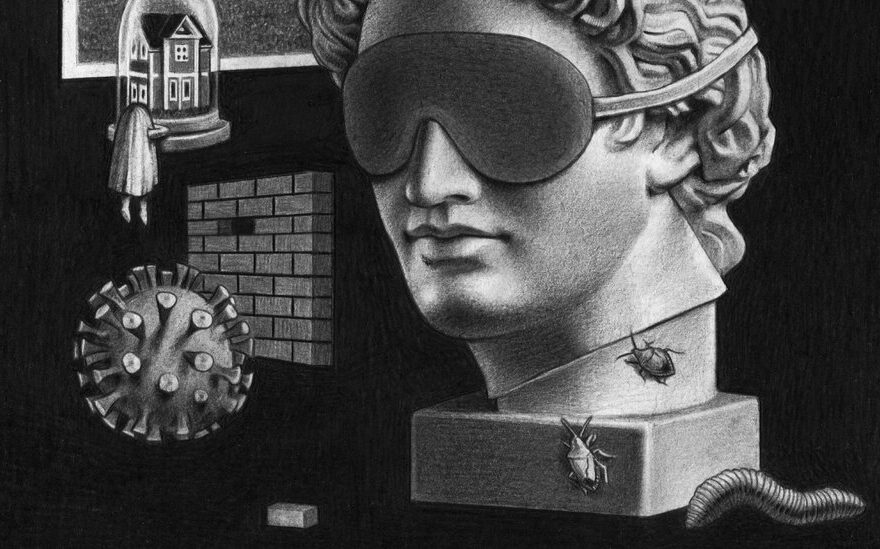Listen to This Article
To hear more audio stories from publications like The New York Times, download Audm for iPhone or Android.
Deirdre Barrett’s body was in bed, but her mind was in a library. The library was inside a very old house, with glowing oil lamps and shelves of beautiful leatherbound books. At first it felt snug and secure and timeless, exactly the sort of place an academic like Barrett, who teaches in the psychiatry department at Harvard Medical School and edits the scientific journal Dreaming, might find inviting. But as the dream went on, she remembered later, “I became less able to focus on the library and more overwhelmed by the unseen horror outside.” Beyond the windows of the softly lit library, “a terrible plague was ravaging the world.”
When Barrett woke up, it was mid-March of 2020. She had been reading about the novel coronavirus in Wuhan since it began to make headlines, and she wondered, as she often did when she read about events in the news, how this one might be showing up in the dreams of the people who were experiencing it: residents on lockdown in China, overwhelmed doctors and nurses in Italy. The dreamlife of collective catastrophe was something she had studied repeatedly during her academic career — analyzing, for example, the dreams of Kuwaitis after the Iraqi invasion and those of British officers held prisoner by the Nazis during World War II, to see how the dreams compared with one another and with dreams from calmer times.
As a child, Barrett was fascinated by her own dreams, which were often vivid. They tended to stay with her well after she woke up, making nights feel like a time for slipping in and out of new worlds and adventures, often ones she’d read about but was now able to interact with and inhabit fully. When she grew up, she decided, she would become a writer of fiction; many of the early stories she wrote were set not just in worlds that she imagined, but also in and out of the various dream worlds of her characters. She was deeply curious about the dream lives of other people: When she started writing for her high school newspaper, she occasionally asked her sources if they’d had dreams related to whatever she was interviewing them about. Dreams were a window, albeit a very strange one, into the way that other people and their minds worked. In college Barrett decided that fiction was not her future (though she did develop a practice of making visual art about what she saw and felt while sleeping). What she wanted was to be a scientist who studied what happened inside dreams.
An Almanac of Covid Dreams
An Almanac of Covid Dreams
At the height of the pandemic in 2020, thousands of people shared their Covid dreams on Twitter, many of them under the hashtag #coronadreams.
Here is a small selection →
An Almanac of Covid Dreams
My dreams have got to step up their metaphor game. In the last week, I’ve been drowning, driving a car while blindfolded and put in charge of steering an out-of-control ship.
An Almanac of Covid Dreams
Crazy dream last night. A huge murder of crows suddenly appeared at my living-room window, flapping their wings, banging on the glass like they were trying to tell me something.
An Almanac of Covid Dreams
I had a dream that my phone’s screen cracked and I started opening the crack, which led to another world.
An Almanac of Covid Dreams
I had the most epic “War of the Worlds” dream last night. It was set in London, and I spent the whole time running away from aliens falling out of the skies. How did you guys sleep?
An Almanac of Covid Dreams
Coronavirus isolation dreams increasingly bizarre and frequent. Last night Celine Dion threw a massive party at her house full of European diplomats. They were all men and wearing suits and got into a huge brawl and fistfight. Celine was very unhappy about it.
An Almanac of Covid Dreams
Last night I had a combo sex/anxiety dream that included Stanley Tucci, Saul Rubinek, an acting exam and the tragic death by kite of my teenage son.
Source: Read Full Article







